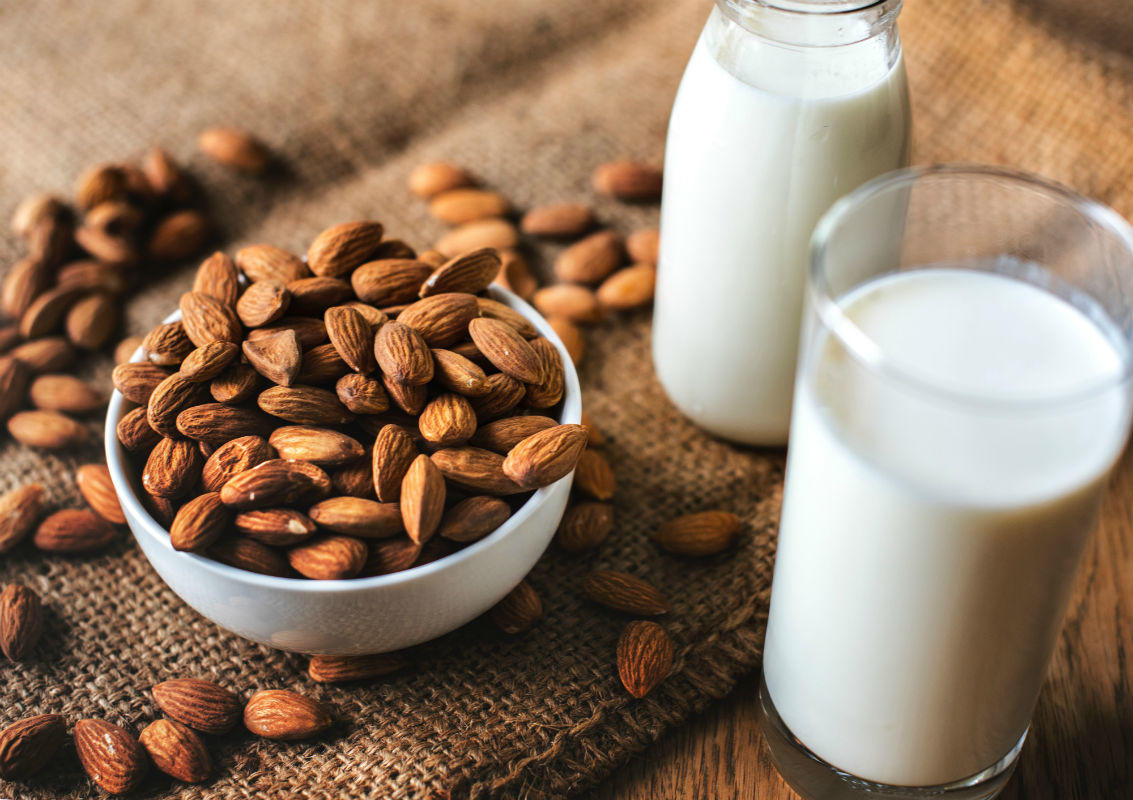Step into the world of nutrition and let's explore the fundamental role dairy plays in maintaining a nourishing diet. As we explore the food pyramid levels, we uncover the essence of these essential food groups and their impact on our overall well-being.
Whether you opt for a plant-based, vegan lifestyle or embrace dairy in your daily routine, understanding the importance of each food group is key to achieving a balanced way of eating. Through personal anecdotes and a deep dive into the history of these food groups, we aim to connect with you on an emotional level.
So, sit back, relax, and let us guide you through the wonderful world of nutrition and its place within the five food groups.


What Are the Essential Food Groups?
To achieve a truly balanced lifestyle, it's crucial to focus on the core food groups that make up the foundation of the food pyramid. These essential food groups include:
- Fruits and Vegetables
- Whole Grains
- Lean Proteins
- Diary
- Fats and Oils
By ensuring that these food groups are well-represented in our daily meals, we can ensure that we're getting the necessary nutrients, vitamins, and minerals our bodies need to function optimally.
Understanding the Food Pyramid and its Levels
The food pyramid is a visual representation of the recommended proportions and servings of each food group. This pyramid is typically divided into multiple tiers, with the lower levels symbolising the food groups that should constitute the bulk of our daily consumption, while the uppermost tier signifies the food groups that should be consumed in moderation.
At the foundation of the pyramid, we encounter the grains, fruits, and vegetables, which are intended to form the bedrock of our diet. As we ascend the pyramid, we come across the muscle-building nutrient and dairy groups, followed by the pinnacle, which often encompasses fats, oils, and sugars.


Exploring the Top Tier of the Food Pyramid
The top tier of the food pyramid is often considered the "discretionary" or "optional" food group, as it includes items that should be consumed in moderation. This tier typically includes foods such as:
- Oils
- Butter
- Margarine
- Sweets
- Sugary beverages
- Fried foods
While these foods can provide energy and add flavor to our meals, they are generally higher in calories, saturated fats, and added sugars, which can have negative impacts on our overall health if consumed in excess.
That’s the one side of this tier, the other side of it are the healthy fats. Healthy fats plays a crucial role in maintaining overall well-being, therefore it should be important to incorporate unsaturated fats into your eating plan. We discuss the numerous benefits of healthy fats in one of our other articles in this series. Here it is.
The Role of Dairy in the Five Food Groups
Dairy products are a valuable source of vital nutrients that are essential for maintaining a nutritious diet. From calcium to amino acids, these products provide a diverse range of nutritional advantages. A significant benefit is the abundance of calcium present in dairy products. Calcium is crucial for the development of sturdy bones and teeth, as well as for the optimal functioning of muscles and nerves. By incorporating these products into your daily meals, you can ensure that you meet the recommended daily calcium intake, thus reducing the likelihood of conditions like osteoporosis.
Another significant nutritional benefit of them is their protein content. Protein plays a crucial role in the body by aiding tissue growth and repair, making it a vital component of a well-rounded eating plan. Milk, cheese, and yoghurt provide an abundant supply of high-quality protein. By incorporating these products into your lifestyle, you can promote muscle growth and development, especially if you lead an active lifestyle or regularly engage in exercise.
This valuable nutrition category offer more than just calcium and protein; they also provide a range of vital nutrients. For instance, they are a source of important vitamins like vitamin D, which is crucial for maintaining healthy bones and a strong immune system. Additionally, they contain vitamin B12, which plays a vital role in the production of red blood cells and the proper functioning of the nervous system. Including these products in your diet helps ensure that you obtain a well-rounded intake of essential vitamins and minerals.

Tips For Incorporating Dairy In Your Diet
Including dairy in your diet is not only delicious but also beneficial for your health. Milk, cheese, and yoghurt are excellent sources of essential nutrients. Here are some tips to incorporate into your daily meals:
-
Start your day with a nutritious breakfast that includes dairy. Enjoy cereal with milk or a yoghurt parfait topped with fresh fruits for a calcium and protein boost. Add cheese to your omelette or scrambled eggs for extra creaminess and flavour.
-
Incorporate it into your snacks throughout the day. Instead of reaching for chips or sugary treats, choose healthy options like cheese sticks or Greek yoghurt. These snacks will satisfy cravings and provide the necessary nourishment to keep you energised.
-
Include this category in your main meals. Use milk or cream to make creamy sauces for pasta or soups. Add cottage cheese to lasagnas or casseroles for richness and texture. Sprinkle grated cheese on top of pizzas or salads for an extra burst of flavour.
-
Choose low-fat or reduced-fat options whenever possible. This helps maintain a balanced diet while still enjoying the benefits of dairy. If you're lactose intolerant, there are lactose-free options available that provide the same nourishment.
Incorporating dairy into your eating plan doesn't have to be complicated. Follow these tips to enjoy its deliciousness and health benefits. Get creative with your meals and start enjoying all the goodness that dairy has to offer.
Alternatives to Animal Products For Plant-Based Diets
If you're following a plant-based diet or aiming to reduce your dairy intake, there are numerous delightful options to consider. One popular choice is almond milk, a blend of ground almonds and water. With its smooth texture and subtly nutty flavour, it serves as a fantastic addition to smoothies, cereal, or simply enjoyed on its own.
Another alternative worth exploring is oat milk, crafted from oats and water. Boasting a naturally sweet taste and velvety consistency, it proves to be an excellent choice for lattes or baking. Both almond and oat milk offer a wealth of nutrients and can seamlessly integrate into your daily routine. So why not give them a go and uncover novel ways to savour your plant-based diet?
Plant-Based Vegan Food Pyramid
The plant-based vegan food pyramid is a valuable tool for those adopting a vegan lifestyle. It shows the range of delicious and nourishing foods that can be enjoyed on a vegan lifestyle. From fruits and vegetables to whole grains, legumes, and nuts, the pyramid ensures individuals get all the essential nutrients for good health.
Fruits and vegetables form the foundation of the pyramid, packed with vibrant colours and goodness. They should be the main focus of any vegan diet, as they provide important vitamins, minerals, and antioxidants for overall well-being. Adding a variety of fruits and vegetables to meals not only enhances flavour but also brings numerous health benefits.
Progressing further up the pyramid, we encounter whole grains such as oats, brown rice, and quinoa. These fibre-rich foods offer sustained energy levels and aid in maintaining a healthy weight. Furthermore, they contain crucial nutrients such as B vitamins, magnesium, and iron. Whole grains possess great versatility and can be seamlessly integrated into a variety of dishes, thus establishing themselves as a staple in any plant-based vegan diet.
Legumes, such as beans, lentils, and chickpeas, occupy the next tier of the pyramid. These plant-derived sources of protein not only offer exceptional nutrition but are also cost-effective and environmentally sustainable. Packed with fibre, iron, and folate, legumes are an ideal option for vegans seeking to fulfil their amino acid requirements.
At the pinnacle of the pyramid, we find nuts and seeds, which provide a rich source of healthy fats, protein, and vital minerals. Incorporating a variety of nuts and seeds into your diet can contribute to heart health, enhance brain function, and assist in weight management.
The plant-based vegan food pyramid is a valuable tool for promoting a nourishing vegan lifestyle. By following this pyramid and including a variety of plant-based foods in your meals, you can enjoy optimal health benefits while also helping the environment. So why wait? Embrace the plant-based vegan food pyramid now and discover a world of delicious and nutritious vegan dishes!
Want to learn more about your food groups? Read our other articles in this series.















